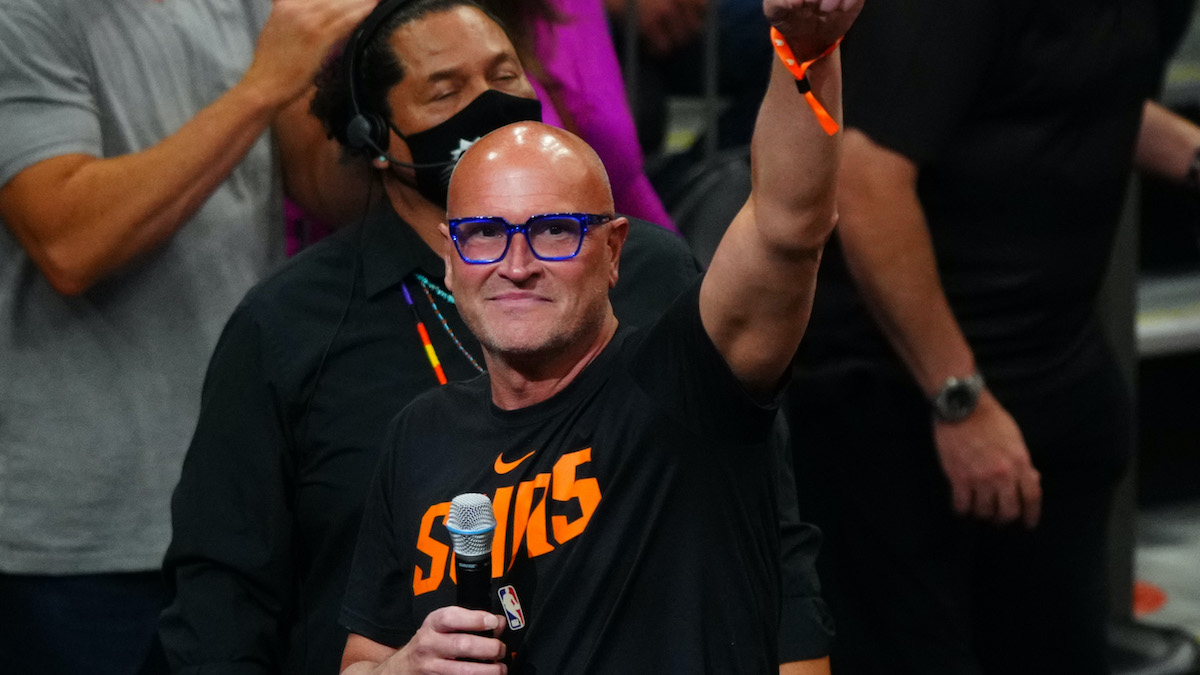Rex Chapman has traversed various physical and mental landscapes throughout his life. Only recently has the former standout shooting guard pieced together the intricate storyline of his journey.
In an interview on the Paul Finebaum Show discussing It’s Hard for Me to Live with Me: A Memoir, Chapman revealed that he used to navigate life casually without much contemplation. Specific chapters of his life, such as his unexpected personal reflections on ascending to basketball stardom in Kentucky and his subsequent battle with opioid addiction, weave a captivating narrative.
What makes his story even more compelling is Chapman’s candid and sincere retelling, especially considering his decade-long sobriety.
“Seth Davis took the lead in co-authoring the book,” Chapman acknowledged. “He reached out to me about it. At that moment, I was unsure if I wanted to delve into it. I had started connecting the dots of my past that led me to where I am now. There were aspects of my life that I had been oblivious to. I had been coasting through life somewhat aimlessly, particularly during the period from ages 32 to 46 when I grappled with painkillers, wreaking havoc on my own life and those around me.
“During that tumultuous time, my children were aged 10 to 20 when I faced arrest, entered rehab, and aimed to set a better example for them above all else. I wanted to regain their pride in me. I also aspired to do the same for my sister, parents, and friends’ children who looked up to me.”
Chapman initially rose to fame as a high school basketball prodigy in Kentucky before joining the Wildcats for his college career. His on-court prowess was immediately evident, earning him the SEC Freshman of the Year title in 1986 and guiding the Wildcats to two NCAA Tournament appearances during his tenure in Lexington.
However, Chapman faced backlash during this period for his continued relationship with his high school sweetheart, Shawn Higgs, who was a member of the Kentucky women’s track team. Chapman, who is white, has openly acknowledged the resistance he encountered from individuals at Kentucky and beyond regarding his interracial relationship with Higgs, who is Black.
Reflecting on his response at the time, Chapman admitted to immature behavior.
“I sought solace in fleeting relationships with various individuals. I was seeking love and affection from anyone willing, as I felt morally conflicted about the expectations placed on me by UK,” Chapman shared. “I was young and naive. Many voices advised us not to be public about our relationship. ‘You can date in private. Keep it away from supporters and adults,’ they said. That phase of my life significantly shaped me, as you can imagine.”
Basketball served as Chapman’s sanctuary amidst the turmoil.
“The basketball court was my refuge — not that it was easy. It provided solace,” Chapman expressed. “College wasn’t enjoyable for me; I couldn’t even enter bars. I immersed myself in basketball, seeking solace in the game. I engaged in reckless behavior to cope with my inner struggles.”
From experiencing NBA triumphs to battling addiction and eventually achieving sobriety, Chapman’s life journey has been a rollercoaster ride.
With the wisdom of hindsight, Chapman now recognizes the valuable lessons embedded in his story.
“I felt I had a narrative to share, hoping that it might resonate with someone,” Chapman concluded.
